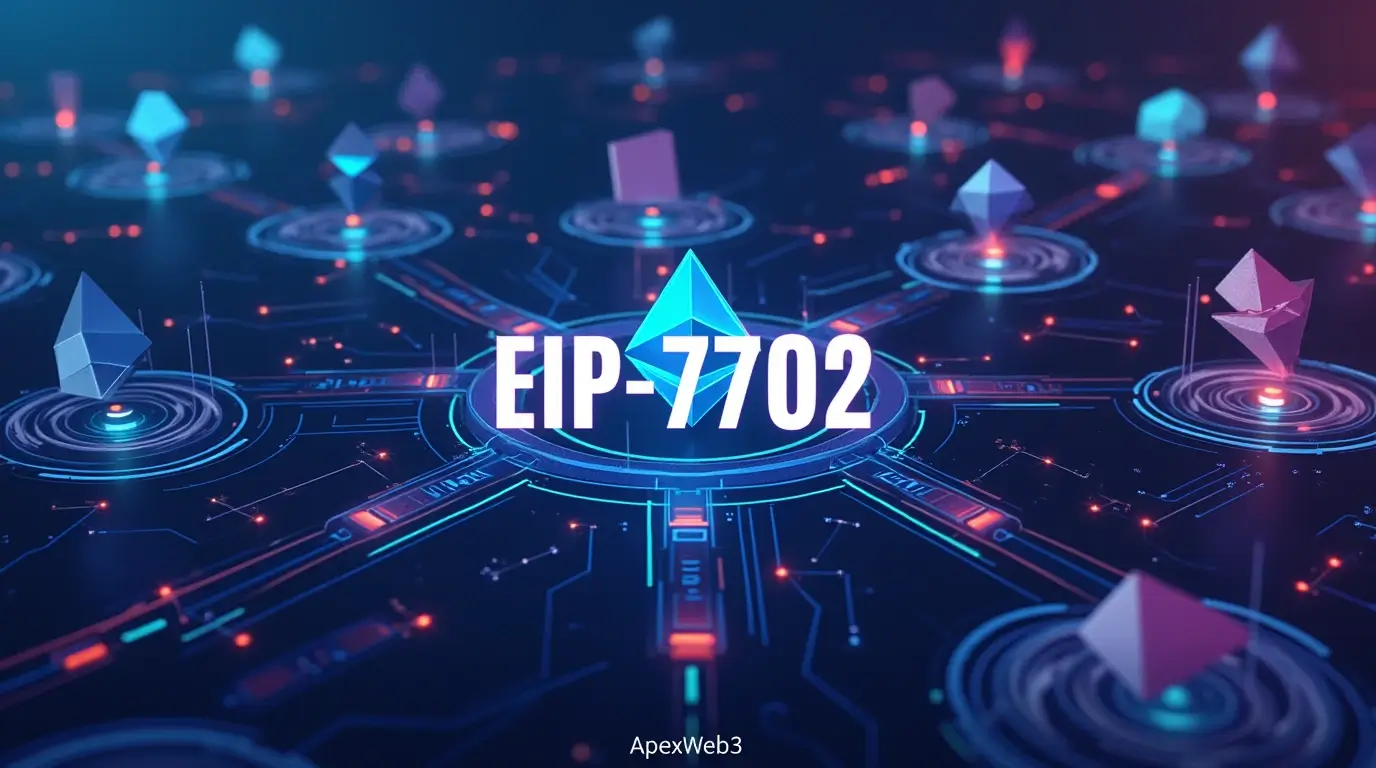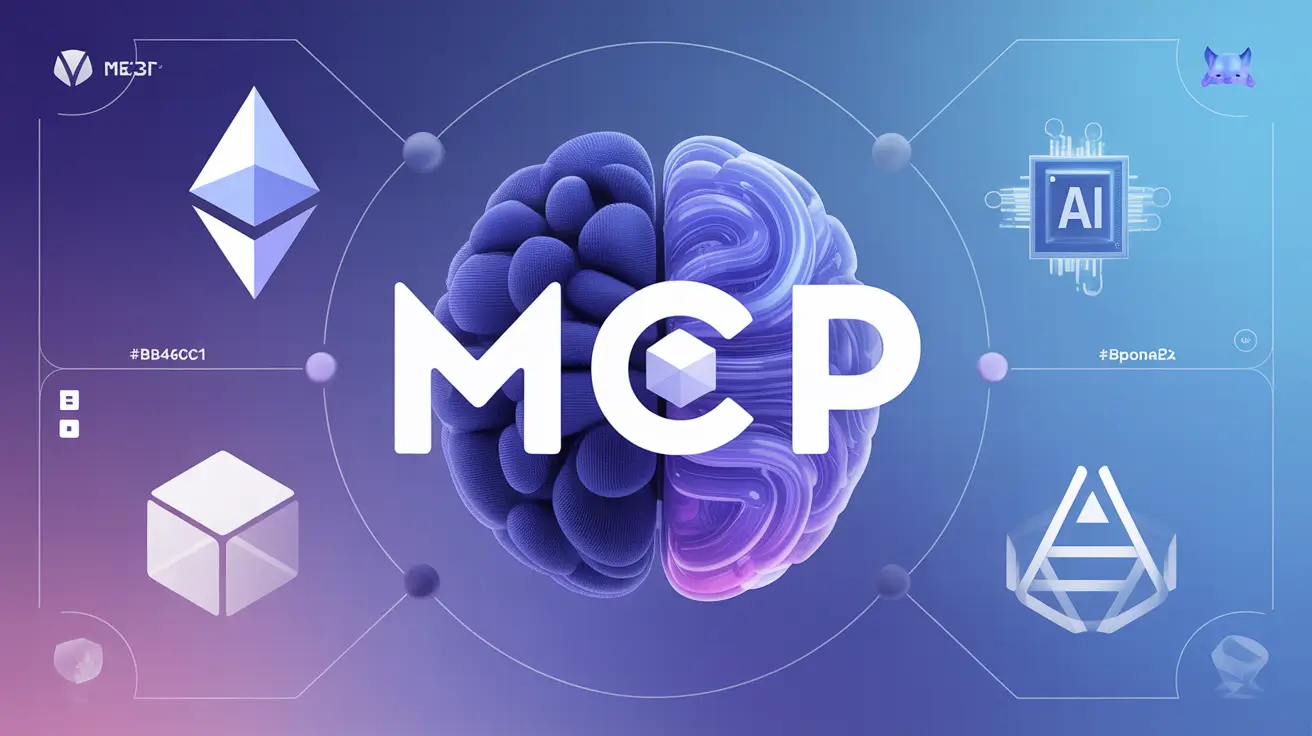Table of Contents
Introduction : EIP-7702 Ethereum’s Account
The upcoming Ethereum hardfork introduces a groundbreaking change to account management through EIP-7702. This significant update redefines the landscape of Ethereum by revolutionizing how Externally Owned Accounts (EOAs) function. By enabling EOAs to act as proxy smart contracts, EIP 7702 opens new doors for account abstraction, enhancing the overall flexibility and efficiency of the Ethereum network. Let’s dive deep into this transformation to explore its implications and benefits for developers, users, and the broader Ethereum ecosystem. This change is set to enhance user experience, optimize transaction processes, and further secure Ethereum’s decentralized infrastructure.
The Core Innovation
At its heart, EIP 7702 introduces a revolutionary concept: the ability for Externally Owned Accounts (EOAs) to act as proxy smart contracts. This is achieved through a new “delegation bytecode” mechanism, fundamentally changing how we think about account abstraction on Ethereum.
Key Features and Benefits
Native Account Abstraction for Existing EOAs
The most significant advantage is that EOAs with valuable transaction history can now become account abstracted without migration. Think of it as upgrading your house without having to move – you keep your address and history while gaining new capabilities.
Flexible Delegation System
The delegation system is both powerful and permanent until changed:
- Once confirmed, delegation persists indefinitely
- EOAs can modify their delegation or reset it to address(0)
- Gas costs are optimized: 25k gas for fresh accounts, with a 12.5k gas refund for accounts with non-zero nonce
Relayer-Friendly Architecture
// Example of how delegation signatures work
struct AuthorizationList {
bytes[] signatures;
bytes[] delegationData;
}The design elegantly separates transaction authorization from execution, allowing relayers to cover gas costs while maintaining security through ECDSA signatures.
Technical Deep Dive
Execution Context
When someone interacts with a delegated EOA:
- The call is forwarded to the delegation smart contract
- The delegation’s bytecode executes in the EOA’s context
- All storage operations occur under the EOA’s namespace
Storage Considerations
A crucial detail for developers: storage management becomes more complex with delegation. The recommendation is to use storage buckets to prevent layout conflicts during redelegation.
Breaking Traditional Paradigms
EIP-7702 challenges several established Ethereum patterns:
- Transaction Invariants: Traditional EOA behaviors around nonce increment and ether balance changes are no longer guaranteed
- RPC Complexity: Providers face new challenges in transaction validation
- Transaction Queuing: Wallets may need to restrict simultaneous pending transactions
Design Patterns and Optimizations
The Batch Executor Pattern
One particularly elegant pattern emerges:
// Example of a batch executor implementation
contract BatchExecutor {
function executeBatch(address[] calldata targets, bytes[] calldata data) external {
for(uint i = 0; i < targets.length; i++) {
(bool success,) = targets[i].call(data[i]);
require(success, "Batch execution failed");
}
}
}
This pattern effectively eliminates the need for separate approve/transferFrom transactions, streamlining common DeFi operations.
Delegation Chain Limitations
To prevent complexity explosions, the EIP explicitly prohibits delegation chains. When encountering multiple delegations, only the first delegation’s code is executed.
Impact on the Ecosystem
This proposal marks a major advancement in Ethereum’s account abstraction, offering:
- Smoother wallet experiences: Users can interact with their wallets effortlessly, reducing delays and improving transaction efficiency.
- More efficient transaction patterns: By enabling features like batch execution, Ethereum can handle multiple operations in a single transaction, saving both time and gas fees.
- Better backward compatibility for existing accounts: Existing EOAs retain their transaction history and address while gaining new functionalities without the need for migration.
EIP-7702 opens new possibilities for developers to create more sophisticated smart contracts while ensuring users benefit from improved security, cost efficiency, and an overall smoother experience. It’s a perfect example of how Ethereum is evolving to meet modern demands while staying true to its decentralization and security principles. This enhancement ensures Ethereum’s readiness for future challenges, providing both short-term improvements and long-term scalability.





